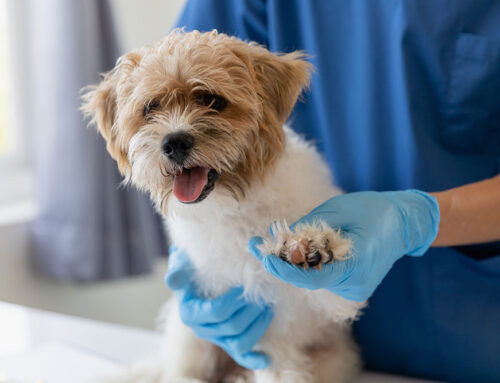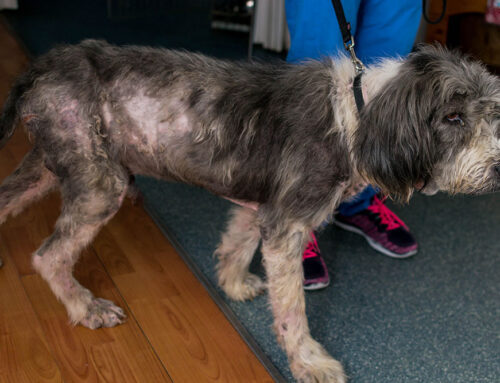Pets often make a variety of respiratory sounds; while some are normal, others may signal health concerns. This guide will help you understand when these sounds indicate a need for veterinary attention. It’s crucial to recognize signs of allergies, infections, heart disease, or airway disorders early to maintain your pet’s health.
If you’re concerned about your pet’s breathing, visit Bayview Animal Hospital for expert care. Book Appointment.
Common Respiratory Sounds in Pets and Their Implications
Coughing in Pets: Causes and When to Worry
Coughing can be due to various health issues. Recognizing the underlying causes can prompt timely action:
- Kennel Cough (Canine Infectious Respiratory Disease Complex): Highly contagious among dogs. Learn more about kennel cough.
- Heart Disease or Heart Failure: Indicates possible cardiovascular problems. Heart disease diagnosis and insights.
- Collapsed Trachea: Common in small breeds like Yorkies and Chihuahuas.
- Lung Infections, Pneumonia, or Cancer: These conditions require immediate veterinary care.
Concerning symptoms include persistent or worsening coughs, “honking” sounds, night coughing (possibly indicating heart disease), or if accompanied by signs like lethargy, weight loss, or blue gums.
Understanding Sneezing in Pets: Normal vs. Concerning
Sneezing can be triggered by mild irritants or more serious conditions:
- Mild Irritation: Caused by dust, perfumes, smoke, or pollen.
- Viral or Bacterial Infections: Common in cats. Information on feline upper respiratory infections.
- Dental Disease: Can lead to sneezing if the nasal cavity is affected.
- Nasal Tumors: More prevalent in older pets, requiring veterinary evaluation.
Frequent sneezing with yellow or green discharge, bloody discharge, or accompanied by loss of appetite or lethargy are signs that need veterinary attention.
Wheezing and Breathing Difficulties in Pets
Wheezing might indicate respiratory distress or serious health issues:
- Asthma: Common in cats. Learn about feline asthma.
- Allergic Reactions or Environmental Irritants: Identifying and mitigating triggers is crucial.
- Bronchitis, Pneumonia, or Heartworm Disease: Canine heartworm information.
Signs like open-mouth breathing, blue or pale gums, or sudden collapse are emergencies.
What is Reverse Sneezing in Dogs?
Characterized by rapid snorting or gasping, reverse sneezing is common but sometimes alarming:
- Often triggered by excitement, allergens, or physical exertion.
- A collapsed trachea can also cause these symptoms. More on collapsed trachea.
It becomes a concern if episodes increase in frequency or severity, or are followed by breathing difficulties or other signs of distress.
Snoring in Pets: Normal Quirk or Health Indicator?
While often harmless, snoring can sometimes point to health issues:
- Brachycephalic Breeds: Such as Bulldogs or Pugs, naturally prone to snoring.
- Obesity: Can obstruct airways.
- Nasal Congestion or Polyps: May need a medical review.
Snoring that worsens or occurs when the pet is awake, or is accompanied by breathing difficulties during sleep, should be evaluated by a vet.
When to Seek Veterinary Care for Pet Respiratory Issues
Immediate veterinary consultation is required if your pet has persistent symptoms like coughing, wheezing, sneezing, exhibits blue, pale, or gray gums, experiences difficulty breathing, or shows signs of collapse or extreme lethargy.
Book Appointment with Bayview Animal Hospital if you have concerns about your pet’s respiratory health.
Preventing Respiratory Issues in Pets
Regular Veterinary Check-Ups
Annual exams are crucial for early detection of respiratory conditions, heart disease, and asthma. Heartworm prevention is vital, especially in areas with high incidence. Learn about canine preventive care.
Avoiding Common Triggers
Protect pets from smoke, strong fragrances, and dust. Consider air purifiers for pets with allergies or asthma, and ensure brachycephalic breeds are kept cool and not overexerted. Allergy management tips.
Understanding your pet’s respiratory sounds and responding to warning signs early are key steps to prevent serious health issues. Regular check-ups and preventive care are essential for keeping your pet healthy. If your pet shows concerning respiratory signs, contact Bayview Animal Hospital today- Book Appointment.








Leave A Comment